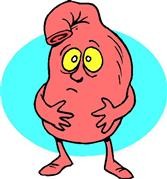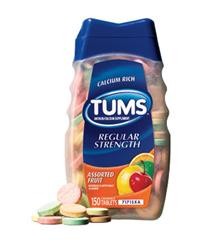
Overview
Most people would be surprised to learn that the effectiveness of many medications is hugely dependent on how exactly they are taken. It sometimes just isn't enough to take your medication at the same time everyday. Something as simple as dosing at the same time as orange juice can decrease a medications absorption in the body by over 50%! A decrease in absorption by this much can have huge ramifications on how well these medications are working for you.
What if this was happening with your blood pressure medication? What about a medication that is supposed to be treating a bad infection? The consequences could be significant. it's very important to know how to exactly take your medication.
This article will list some popular medications that have specific dosing requirements to ensure full effectiveness. Have a question about something you don't see? Email us and we are happy to answer any questions you may have!
Timing Is Everything
While it is important to take your medication at the same time everyday, there are some that should be given at specific times of the day. Taking them at the wrong time can lead to lower effectiveness and possibly side effects.
 Drugs in this class include Protonix, Prilosec, Nexium, Aciphex and Prevacid. These medications are usually taken once daily but can be dosed twice daily in more severe cases. These medications work best if they are taken 30 minutes before a meal. The reason for this is because these medications only inhibit the acid pumps in the stomach that are active.
Drugs in this class include Protonix, Prilosec, Nexium, Aciphex and Prevacid. These medications are usually taken once daily but can be dosed twice daily in more severe cases. These medications work best if they are taken 30 minutes before a meal. The reason for this is because these medications only inhibit the acid pumps in the stomach that are active.  Our blood pressure does not stay consistent throughout the day. In fact, it follows a fairly predictable 24 hour pattern. The most concerning part of the blood pressure pattern is what happens while we are sleeping. During sleep, our blood pressure dips to it's lowest point of the day. It then later begins to increase around 4 to 6 AM and generally continues to increase throughout the day.
Our blood pressure does not stay consistent throughout the day. In fact, it follows a fairly predictable 24 hour pattern. The most concerning part of the blood pressure pattern is what happens while we are sleeping. During sleep, our blood pressure dips to it's lowest point of the day. It then later begins to increase around 4 to 6 AM and generally continues to increase throughout the day.  The statin medication class is currently the most effective drug class available to treat high cholesterol. The most significant contributing factor to our blood cholesterol levels is in fact not the cholesterol we take in from our diet, but actually the cholesterol that our own body makes. The statin medications reduce the amount of cholesterol that is created by the liver.
The statin medication class is currently the most effective drug class available to treat high cholesterol. The most significant contributing factor to our blood cholesterol levels is in fact not the cholesterol we take in from our diet, but actually the cholesterol that our own body makes. The statin medications reduce the amount of cholesterol that is created by the liver.  Medications for thyroid replacement come in extremely small dosages. Most medications are measured in milligrams, or 1/1000th of a gram. Levothyroxine is measured in micrograms, or 1/1000 of a milligram! A small change in how the medications is absorbed can cause drastic changes in your thyroid level. For this reason it is extremely important to take levothyroxine consistently. The most common recommendation is to take it first thing in the morning, 30 minutes before food or other medications. Again, the most important thing is to stay consistent in how you take the medication in order to get consistent blood levels!
Medications for thyroid replacement come in extremely small dosages. Most medications are measured in milligrams, or 1/1000th of a gram. Levothyroxine is measured in micrograms, or 1/1000 of a milligram! A small change in how the medications is absorbed can cause drastic changes in your thyroid level. For this reason it is extremely important to take levothyroxine consistently. The most common recommendation is to take it first thing in the morning, 30 minutes before food or other medications. Again, the most important thing is to stay consistent in how you take the medication in order to get consistent blood levels! Bisphosphonates are a class of medications that are the primary treatment for osteoporosis. They include Fosamax (Alendronate), Boniva (ibandronate), and Actonel (Risedronate). Due to absorption issues, they should be taken first thing in the morning, 30 minutes before other medication or food. The only exception to this is a delayed release form of Actonel known as Atelvia, which should be taken immediately after breakfast.
Bisphosphonates are a class of medications that are the primary treatment for osteoporosis. They include Fosamax (Alendronate), Boniva (ibandronate), and Actonel (Risedronate). Due to absorption issues, they should be taken first thing in the morning, 30 minutes before other medication or food. The only exception to this is a delayed release form of Actonel known as Atelvia, which should be taken immediately after breakfast.To Eat Or Not To Eat
 Surprisingly enough, citrus juices can have a major impact on drug absorption in the body. They can significantly INCREASE or DECREASE drug levels, depending on the drug. Grapefruit juice specifically can INCREASE the amount of drug in your body by inhibiting a drug metabolizing enzyme in the liver known as CYP3A4. Drugs that affected by this include:
Surprisingly enough, citrus juices can have a major impact on drug absorption in the body. They can significantly INCREASE or DECREASE drug levels, depending on the drug. Grapefruit juice specifically can INCREASE the amount of drug in your body by inhibiting a drug metabolizing enzyme in the liver known as CYP3A4. Drugs that affected by this include:- Certain "Statin" cholesterol medications,
- Certain antibiotics such as clarithromycin
- Certain blood pressure medications like amlodipine.
 As mentioned before, food can have alternating effects on medications. Here is a list of drugs that absolutely SHOULD be taken on a full stomach to enhance absorption of medication:
As mentioned before, food can have alternating effects on medications. Here is a list of drugs that absolutely SHOULD be taken on a full stomach to enhance absorption of medication:- Lovastatin
- Augmentin (Amoxicillin/Clavulanic Acid) Extended Release
- Nitrofurantoin
- Cefuroxime
- Proton Pump Inhibitors (Prilosec, Prevacid etc.)
- Ampicillin
- Clarithromycin
- Penicillin
- Rifampin
- Levaquin
- Tetracycline
- Voriconazole
 A common warning sticker you may see on your prescription bottle states that you should not take your medication with calcium or magnesium salts. This warning sticker is on medications that actually bind to what is know as cations, or positively charged ions. Calcium (Ca 2+), Magnesium (Mg 2+), Aluminum (Al 3+) and zinc (Zn 2+) are all positively charged cations which bind to certain medications, drastically reducing their absorption and effectiveness. It is important to avoid cation consumption with medications that interact. Calcium is commonly found in dairy products, antacids (TUMS) and multivitamins. Below is a partial list of medications that interact:
A common warning sticker you may see on your prescription bottle states that you should not take your medication with calcium or magnesium salts. This warning sticker is on medications that actually bind to what is know as cations, or positively charged ions. Calcium (Ca 2+), Magnesium (Mg 2+), Aluminum (Al 3+) and zinc (Zn 2+) are all positively charged cations which bind to certain medications, drastically reducing their absorption and effectiveness. It is important to avoid cation consumption with medications that interact. Calcium is commonly found in dairy products, antacids (TUMS) and multivitamins. Below is a partial list of medications that interact:



